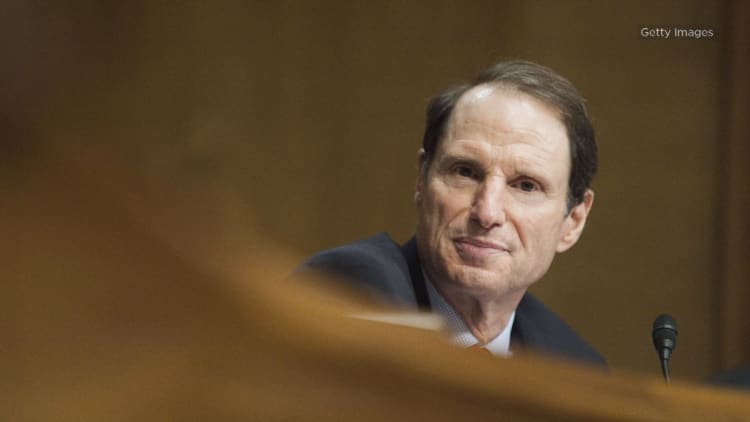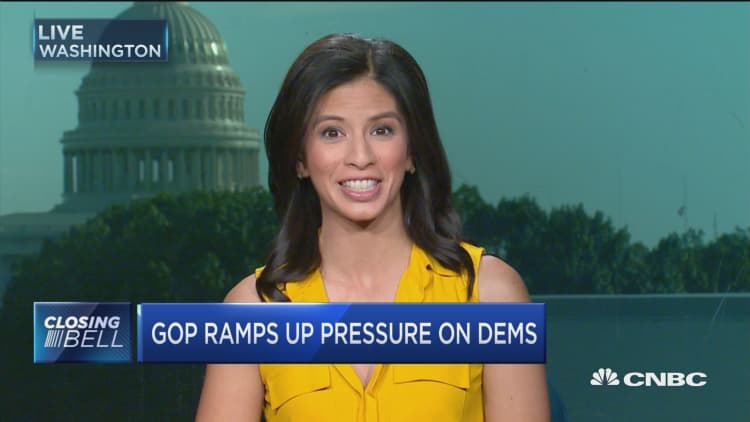A growing number of Wall Street strategists say the GOP tax plan is probably not good news for the bull market.
"If tax relief is passed, there is a lot to be excited about," wrote The Leuthold Group's Jim Paulsen. "It would significantly lift both profitability and overall economic growth and likely boost animal spirits among business and households."
But economists point out that the Republican tax plan would add to the deficit at a time when it is already high relative to economic output, something markets don't typically reward. They also question whether tax cuts would boost investment and jobs since American companies are already flush with cash.
Paulsen asked the question without answering it: "The foundation of this bull market has been a persistent disappointingly slow pace of economic growth," he said in a note on Monday. "While significant fiscal stimulus could finally help boost economic growth, at this point in the recovery, would it ultimately be good for the bull market?"

Republicans have long argued that tax reform is key to improving economic growth, which has yet to return to pre-financial crisis levels. Last week, House Speaker Paul Ryan appeared on CNBC's "Squawk Box" to make the case that reform is essential to meaningful GDP growth.
"We really can get this done this year," he said. "You're not going to get 3 percent [economic] growth in 2018 if you don't get this done in 2017. So we're really serious about that."
Last week, President Donald Trump and congressional Republicans unveiled the first major revamp of the nation's tax code since the 1980s. The nearly $6 trillion tax cut would reduce taxes on corporations, simplify brackets and nearly double the standard deduction used by the majority of Americans.
The president has been simultaneously urging Republicans to pass tax cut reform "needed now more than ever," while taking credit for the stock market's recent records.
The S&P 500 has gained more than 13 percent since January and has been consistently notching all-time records over the last few weeks. The Dow Jones industrial average broke 22,000 points earlier this year and has also clinched several new highs in the last few weeks.
"For Republicans, tax cuts are the cure for everything," said Scott Brown, chief economist at Raymond James. The effect on the market "is really more psychological. Firms aren't going to go out and boost investment. I mean they're already sitting on a lot of cash right now."
Trump administration officials, including chief economic advisor Gary Cohn and Treasury Secretary Steven Mnuchin, defend the stimulus, saying it would bolster stronger growth, eventually leading to higher tax payments to offset the cost. Mnuchin reiterated this argument last week, declaring that the cut would "pay for itself."
Gluskin Sheff's chief economist and strategist, David Rosenberg, calls that sort of thinking "nutty."
"These tax cuts will have to be deficit-financed. In contrast to Roosevelt and Reagan, this is not fiscal policy aimed at fighting a deep recession," he said. "And this is not stimulus deployed at a time of comfortable 30 percent debt-to-GDP ratios but rather 80 percent."
The current publicly held national debt has ballooned to $14.6 trillion, representing nearly 80 percent of GDP, the highest level since after World War II. The rapidly growing debt is largely attributable to the rising costs of Social Security and Medicare as the huge generation of baby boomers continues to age, according to the Congressional Budget Office.
"Remember who won the monetary-fiscal policy battle in 1981. And even with the historic income tax reforms of 1986, recall what happened in the fall of 1987 to Mr. Market as the Fed again drained liquidity," advised Rosenberg.
"To assume that fiscal policy will extend the cycle is a classic case of hope triumphing over experience."
WATCH: GOP ups pressure on Dems for tax reform



